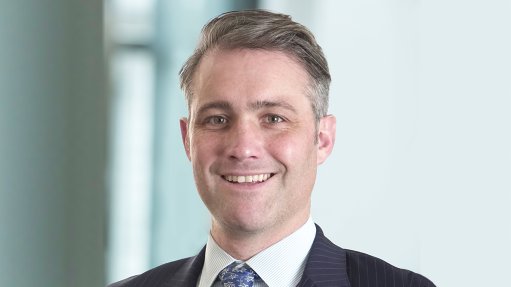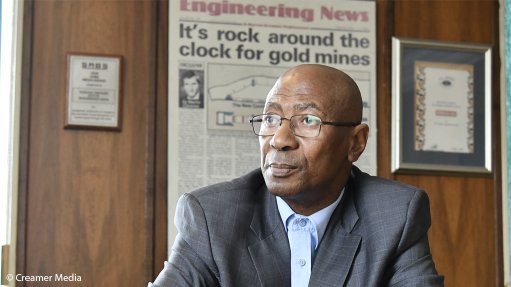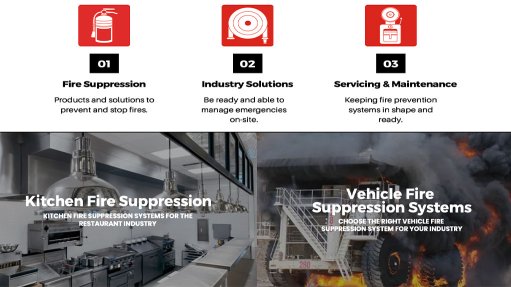Aspasa calls for more oversight, increased awareness of legislation
The sand industry, while subject to the Mining and Petroleum Resources Development Act, is still suffering from a lack of “control” or oversight, Aggregate and Sand Producers Association of South Africa (Aspasa) director Nico Pienaar told the CDE sand-washing conference on Wednesday.
He noted a recent discussion with Chief Inspector of Mines David Msiza in which he was alerted to an operation in Polokwane that was removing sand from a riverbed across from its actual permit area and jeopardising the structural soundness of a provincial bridge.
Pienaar said the lack of “control” could be attributed by a misconception by the sand and aggregate industry that, "if I don’t blast, I’m not mining".
“As soon as you take it from it’s natural state, you’re mining . . . when you’re taking sand from the beach, you’re also mining.”
He added that there was also a misconception that sand was not classified as a mineral.
These misconceptions are compounded by the Department of Mineral Resources and Energy's seeming reluctant to pursue noncompliance and illegal mining in the aggregates sector, with Pienaar suggesting that if the perpetrators within the aggregates industry were mining gold, they would be shut down as soon as possible.
Pienaar commented that unregulated aggregate businesses needed to be challenged by entities such as the South African Revenue Services (Sars) – his preferred entity because of its effectiveness in prosecuting companies which owe taxes – the departments of Human Settlements, Water and Sanitation, Environment, Forestry and Fisheries and Mineral Resources and Energy, as well as the South African Police Service.
He affirmed that if these entities worked together, the problem could be resolved quickly.
LEGISLATIVE ISSUES
Pienaar previously told Mining Weekly Online that, aside from a lack of enforcement in the aggregates industry, current legislation was ill-suited to the sector, as it had been drafted with large mining companies in mind.
As such, Aspasa spent R500 000 on legal fees in 2018 fighting Sars' new interpretation of the Royalty Tax calculation. Sars has applied for leave to appeal the judgment that found against it, with Aspasa’s lawyer noting that should the appeal take place it would largely be academic because of an amendment put fourth in the 2018 Taxation Laws Amendment Bill, which has yet to be signed into law.
Additionally, Pienaar noted that, from an enforcement point of view, the then Chief Inspector of Mines in 2008, suggested that housing developments should not take place within 2 km of an existing operation. He commented that despite Mzisa’s insistence that municipalities be more aware of where existing mines are when rezoning, the fact was that communities were the ones breaching the 2 km barrier.
This led to the “major problem” of environmental impact, and the fact that communities were more likely to oppose licence applications during the environmental-impact assessment phase.
Further, he noted that communities were more likely to protest and complain about perceived health impacts, which meant that the possibility of Section 54s became more likely.
Additionally, he noted that Aspasa’s environmental lawyer was working to create awareness that smaller entities, especially those found in aggregates and quarrying, need only apply for a water use permit.
Pienaar noted that many of its members were being advised to apply for water use licences, which he said cost about R150 000 a year, which was not economically feasible because those companies did not make a lot of money on tonnage.
Aspasa also noted that the Waste Exclusion regulations that came into effect in July 2018, had resulted in several applications having already been submitted as well as a consultation process to exclude waste streams from the legal definition of waste. Aspasa noted that members could, for example, consider the submission of applications for the exclusion of returned concrete that is crushed for reuse in construction or road building from the definition of waste.
Article Enquiry
Email Article
Save Article
Feedback
To advertise email advertising@creamermedia.co.za or click here
Comments
Press Office
Announcements
What's On
Subscribe to improve your user experience...
Option 1 (equivalent of R125 a month):
Receive a weekly copy of Creamer Media's Engineering News & Mining Weekly magazine
(print copy for those in South Africa and e-magazine for those outside of South Africa)
Receive daily email newsletters
Access to full search results
Access archive of magazine back copies
Access to Projects in Progress
Access to ONE Research Report of your choice in PDF format
Option 2 (equivalent of R375 a month):
All benefits from Option 1
PLUS
Access to Creamer Media's Research Channel Africa for ALL Research Reports, in PDF format, on various industrial and mining sectors
including Electricity; Water; Energy Transition; Hydrogen; Roads, Rail and Ports; Coal; Gold; Platinum; Battery Metals; etc.
Already a subscriber?
Forgotten your password?
Receive weekly copy of Creamer Media's Engineering News & Mining Weekly magazine (print copy for those in South Africa and e-magazine for those outside of South Africa)
➕
Recieve daily email newsletters
➕
Access to full search results
➕
Access archive of magazine back copies
➕
Access to Projects in Progress
➕
Access to ONE Research Report of your choice in PDF format
RESEARCH CHANNEL AFRICA
R4500 (equivalent of R375 a month)
SUBSCRIBEAll benefits from Option 1
➕
Access to Creamer Media's Research Channel Africa for ALL Research Reports on various industrial and mining sectors, in PDF format, including on:
Electricity
➕
Water
➕
Energy Transition
➕
Hydrogen
➕
Roads, Rail and Ports
➕
Coal
➕
Gold
➕
Platinum
➕
Battery Metals
➕
etc.
Receive all benefits from Option 1 or Option 2 delivered to numerous people at your company
➕
Multiple User names and Passwords for simultaneous log-ins
➕
Intranet integration access to all in your organisation


















